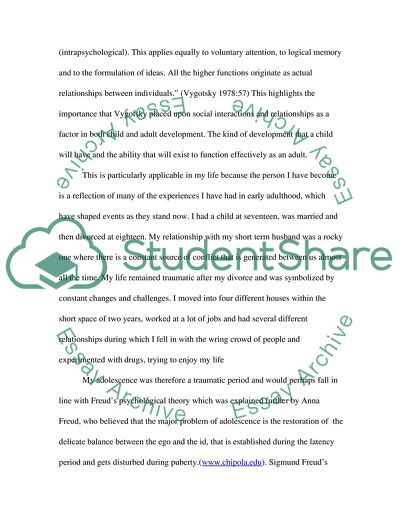Cite this document
(“Developmental Theories of Learning Essay Example | Topics and Well Written Essays - 2000 words”, n.d.)
Developmental Theories of Learning Essay Example | Topics and Well Written Essays - 2000 words. Retrieved from https://studentshare.org/psychology/1541391-essay-developmental-experiences
Developmental Theories of Learning Essay Example | Topics and Well Written Essays - 2000 words. Retrieved from https://studentshare.org/psychology/1541391-essay-developmental-experiences
(Developmental Theories of Learning Essay Example | Topics and Well Written Essays - 2000 Words)
Developmental Theories of Learning Essay Example | Topics and Well Written Essays - 2000 Words. https://studentshare.org/psychology/1541391-essay-developmental-experiences.
Developmental Theories of Learning Essay Example | Topics and Well Written Essays - 2000 Words. https://studentshare.org/psychology/1541391-essay-developmental-experiences.
“Developmental Theories of Learning Essay Example | Topics and Well Written Essays - 2000 Words”, n.d. https://studentshare.org/psychology/1541391-essay-developmental-experiences.


